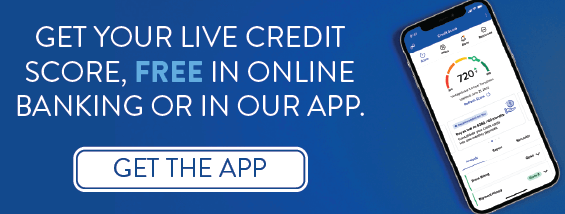ICBA and FNB: Community Banks Build Better Communities
In honor of ICBA Community Banking Month in April, FNB Bank and the Independent Community Bankers of America (ICBA) are shining a spotlight on community banks’ outsized role in fostering economic wellbeing and meeting the financial needs of their consumers and local communities.
“As a local small business ourselves, we are invested in building the prosperity of our customers, while enhancing the community we all call home,” said Sally Hopkins, FNB President & CEO. “FNB invites our local citizens to explore how we can help them throughout their financial journey as we work together to help them achieve their personal and business goals—all while keeping deposits local and boosting our local community.”
Community banks take in local deposits and redistribute them back into the community—making more than 60 percent of small-business loans and more than 80 percent of agriculture loans. They also contribute tax dollars that help maintain local municipalities and keep local neighborhoods viable and vibrant because serving the best interests of their customers is fundamental to their business philosophy. Community banks:
- Are America’s most trusted lenders and have a 73 percent net satisfaction score compared to 58 percent for large banks and just 37 percent for online lenders, according to a Federal Reserve study.
- Are committed lenders with loan growth that has outpaced noncommunity banks for eight years.
- Demonstrate safety and soundness with higher capital ratios and better loan quality than the largest institutions.
- Offer high-tech, high-touch service. This gives consumers access to modern-day conveniences while maintaining the high-quality customer service for which community banks are known.
- Have a strong track record in helping underserved Americans by focusing a relatively large share of their resources in low- and moderate-income tracts.
- Understand and embrace local small businesses. In fact, community banks make more than 60 percent of all small business loans under $1 million.
- Give back to their communities. Civic service is a way of life for community bankers as reflected in ICBA’s National Community Bank Service Awards.
“Local market knowledge, relationship-based lending, and civic-minded service are community banking hallmarks and the cornerstone to our industry’s success and longevity,” ICBA President and CEO Rebeca Romero Rainey said. “ICBA is proud to represent community banks nationwide and support their efforts to build better communities through a strengthened local economy.”
For more facts about community banks, click here. Follow the ICBA Community Banking Month conversation on social media with the #BankLocally hashtag.
About FNB Bank
FNB Bank, founded in 1875, is one of the oldest banks in the state of Kentucky and ranks among the highest in the nation in the area of safety and soundness. FNB is a 2021 ‘Best Places to Work in Kentucky’ Small Business Category Award Winner. The bank currently has nine locations: Mayfield Main, Mayfield Southside, Wingo, Lone Oak, Paducah Midtown, Murray North, Murray South, Cadiz Main, and Cadiz West. FNB is member FDIC and an Equal Housing Lender.
About ICBA
The Independent Community Bankers of America creates and promotes an environment where community banks flourish. ICBA is dedicated exclusively to representing the interests of the community banking industry and its membership through effective advocacy, best-in-class education, and high-quality products and services.
With nearly 50,000 locations nationwide, community banks constitute 99 percent of all banks, employ more than 700,000 Americans and are the only physical banking presence in one in three U.S. counties. Holding more than $5 trillion in assets, over $4.4 trillion in deposits, and more than $3.4 trillion in loans to consumers, small businesses and the agricultural community, community banks channel local deposits into the Main Streets and neighborhoods they serve, spurring job creation, fostering innovation, and fueling their customers’ dreams in communities throughout America. For more information, visit ICBA’s website at www.icba.org.
# # #

